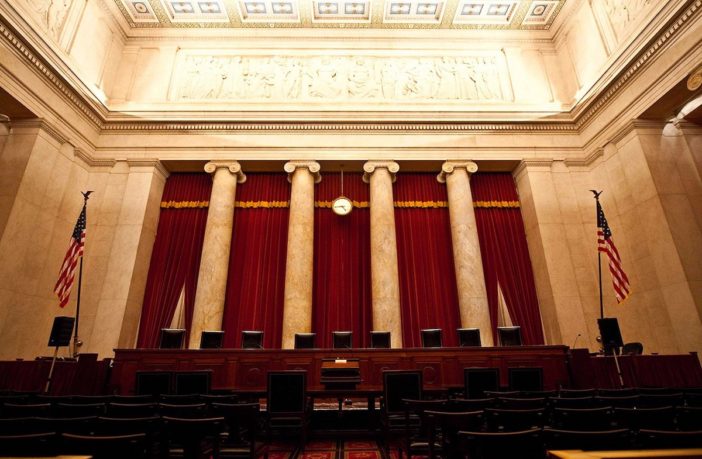The Supreme Court began a highly anticipated final day of the term Thursday by striking down affirmative action.
The conservative-led justices ruled 6-3 against the admissions policies at Harvard University and the University of North Carolina, a decision that will have widespread and lasting implications.
The high court is expected to release decisions on several other cases including President Biden’s student loan forgiveness plan, LGBTQ rights, and religious freedom.
The affirmative action decision overturns long-standing precedent that has historically benefited Black and Latino students.
Two prominent programs at Harvard and the University of North Carolina, aimed at achieving diversity on campus, are at the center of this legal battle.
During oral arguments, the justices leaning toward the right side of the bench appeared inclined to rule against the schools.
The decision represents a significant victory for opponents of affirmative action, who argue that any consideration of race hinders the goal of a color-blind society.
Another case of great importance addresses President Joe Biden’s student loan forgiveness program.
The Supreme Court is examining two challenges to the program, which aims to provide targeted debt relief to millions of student loan borrowers.
The program has faced legal obstacles, with Republican-led states and conservatives contending that it unlawfully attempts to erase approximately $430 billion of federal student loan debt under the guise of pandemic relief.
At the heart of the case lies the question of the Department of Education’s authority to forgive these loans.
Conservative justices have previously expressed concerns about the growing power of agencies without direct public accountability, thus raising questions about the separation of powers.
A religious accommodation dispute involving a former mail carrier, Gerald Groff, is also on the docket.
Groff, an evangelical Christian, seeks to sue the US Postal Service for failing to accommodate his request to refrain from working on Sundays due to religious reasons.
The lower court ruled against Groff, citing the undue burden it would place on the USPS and the potential negative impact on workplace morale when other employees have to cover his shifts.
However, during the lengthy oral arguments, there seemed to be a consensus that the appeals court had been too hasty in dismissing Groff’s case.
The question of whether businesses can deny services to LGBTQ customers is another critical issue before the court.
Lorie Smith, a graphic designer, wishes to expand her business by creating custom wedding websites but refuses to work with gay couples due to religious objections against same-sex marriage.
Smith’s plans have been stalled by Colorado’s public accommodations law, which prohibits businesses from refusing service based on sexual orientation.
Smith, who operates under the name 303 Creative LLC, maintains that she is willing to work with all individuals regardless of sexual orientation but draws the line at creating websites celebrating same-sex marriage, as it conflicts with her beliefs.



